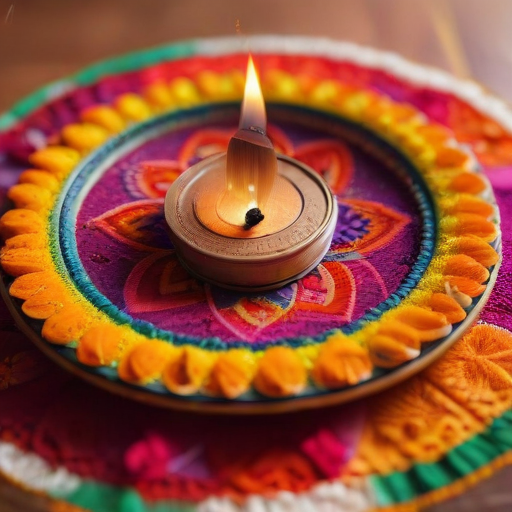Diwali, often characterized by fireworks and delicious sweets, is much more than just a festive spectacle. It is a celebration steeped in cultural significance, observed across four major religions—Hinduism, Jainism, Sikhism, and Buddhism—each with its own unique customs and meanings. This year, Diwali will be celebrated on different dates by these faiths, with Hindus and Jains observing it on October 31, Sikhs on November 1, and Buddhists on November 15.
Hindu communities, such as 23-year-old Vedika Apte from west London, embrace Diwali as a cherished occasion. She describes making ladoos, traditional Indian sweets, with her mother as a highlight. For her, Diwali encompasses gratitude and the importance of family. The festival spans five days, beginning with Dhanteras, where purchasing gold and metal is thought to usher in wealth. The rituals evolve through the days, involving cleansing the home, lighting divas, and dedicating prayers for blessings and prosperity.
Jain participant Dev, 19, emphasizes a different aspect of Diwali. Focused on spirituality and introspection, he highlights the festival’s significance in honoring the moment when Jainism’s founder, Lord Mahavira, achieved Moksha, or liberation. For Dev, the festival is a time of self-reflection, fasting, and cleansing, without the use of fireworks, which he believes could disrupt the peace of souls around us.
Sikh observances echo this sentiment, as Beant Dhillon, a trainee solicitor from east London, explains how he connects with the deeper message of Diwali. Known as Bandi Chhor Divas, Sikhs commemorate the release of Guru Hargobind and 52 Hindu princes from wrongful imprisonment. Beant emphasizes this event’s revolutionary spirit, representing the triumph of good over evil.
Meanwhile, Venerable Phramaha Bhatsakorn Piyobhaso, a Thai Buddhist, celebrates Loy Krathong, which honors the water goddess. For him, this festival is about survival, respect for nature, and an opportunity to reflect on life’s teachings through ceremonies, offerings, and communal festivities.
Overall, Diwali serves not just as a vibrant celebration but as a profound reminder of spiritual gratitude, resilience, and cultural heritage. It highlights how festivals can be rich in meaning, encouraging individuals to reflect and connect deeply with their traditions and communities.
In essence, Diwali, with its diverse practices across cultures, reinforces values of unity, introspection, and gratitude, allowing people to celebrate both joyfully and meaningfully. This year’s celebrations not only bring forth light and festivities but also a chance for people to instill a sense of appreciation in their everyday lives.
